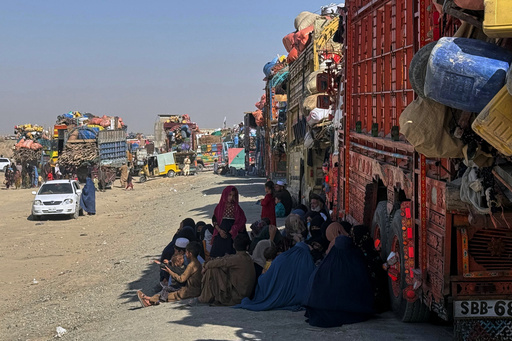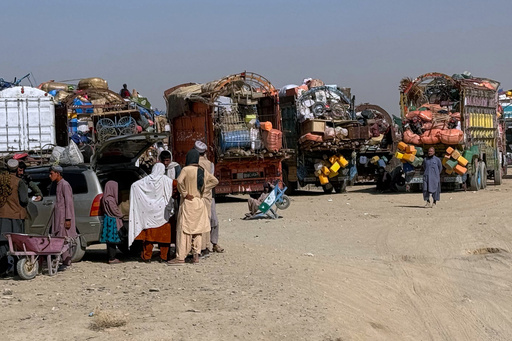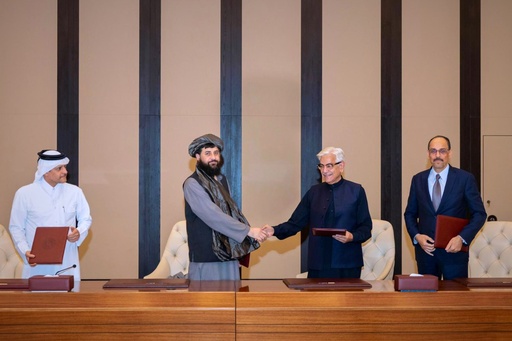Pakistan says it seeks no further escalation but urges Afghanistan to act against militants
News > Top Stories

Audio By Carbonatix
12:45 PM on Friday, October 31
By MUNIR AHMED
ISLAMABAD (AP) — Pakistan does not seek further escalation of hostilities with Afghanistan but expects the South Asian country's Taliban rulers to address its security concerns by taking action against militants operating from Afghan soil, Pakistan’s Foreign Ministry said Friday.
Foreign Ministry spokesman Tahir Andrabi’s remarks signaled an easing of tensions between the two neighbors, who earlier this month exchanged fire along the border, leaving dozens of soldiers, civilians and militants dead.
The comments came a day after Pakistan and Afghanistan agreed to maintain a ceasefire following nearly weeklong negotiations facilitated by Turkey and Qatar in an effort to prevent a wider conflict in the region where al-Qaida, the Islamic State group and other groups are trying to resurface.
Earlier this month, Pakistan’s military said it launched strikes on the hideouts of the Pakistani Taliban inside Afghanistan, killing dozens of people whom it described as insurgents. Afghanistan said that the people killed were civilians and struck Pakistani military posts in response, claiming it killed 58 Pakistani soldiers in the retaliatory fire. Pakistan’s military, however, acknowledged it lost 23 soldiers in the fighting.
It prompted Qatar to invite delegations from the two sides to Doha, where they agreed to a ceasefire on Oct. 19. It was followed by six days of talks in Istanbul, which went up and down until Thursday night when the two sides agreed to maintain the ceasefire.
Andrabi praised the role of Qatar and Turkey in facilitating the peace talks, saying the two sides will meet again in Istanbul on Nov. 6 to finalize mechanisms for implementing the ceasefire.
Pakistan has seen a surge in militant attacks in recent months, most claimed by the Pakistani Taliban, known as Tehrik-e-Taliban Pakistan, or TTP. The group was designated a terrorist organization by the United States and the United Nations a decade ago. It is separate from the Afghan Taliban but has been emboldened by the latter’s takeover of Kabul in 2021.
Despite the ceasefire, both countries have kept major crossings closed, leaving hundreds of trucks packed with goods and thousands of refugees stranded on each side.
Andrabi said all the border crossings with Afghanistan remain closed for trade for now because of security reasons but refugees were being facilitated to return home from at least the southwestern Chaman border crossing, while other border crossings were shut for security reasons.
In Kabul, Abidullah Uqab Farooqi, a spokesperson for the Border Police of the Ministry of Interior, however, said the key northwestern Torkham crossing would reopen Saturday, but only for refugees.
There was no announcement from Pakistan about the reopening of Torkham.
But the latest developments came a day after Afghanistan’s ambassador to Pakistan, Ahmad Shakeeb, wrote on X that large numbers of Afghan refugees were stranded because of Pakistan’s closure of the crossings.
On Friday, Andrabi said the Afghan ambassador violated diplomatic norms by airing his grievances on social media instead of communicating through Pakistan’s Foreign Ministry.
Since 2023, Pakistan has launched a campaign against immigrants l iving illegally in the country. More than a million Afghans have been deported since then.
___
Associated Press writer Abdul Qahar contributed to this story from Jalalabad, Afghanistan.










